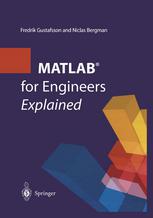

Most ebook files are in PDF format, so you can easily read them using various software such as Foxit Reader or directly on the Google Chrome browser.
Some ebook files are released by publishers in other formats such as .awz, .mobi, .epub, .fb2, etc. You may need to install specific software to read these formats on mobile/PC, such as Calibre.
Please read the tutorial at this link: https://ebookbell.com/faq
We offer FREE conversion to the popular formats you request; however, this may take some time. Therefore, right after payment, please email us, and we will try to provide the service as quickly as possible.
For some exceptional file formats or broken links (if any), please refrain from opening any disputes. Instead, email us first, and we will try to assist within a maximum of 6 hours.
EbookBell Team

4.4
92 reviewsThis book is written for students at bachelor and master programs and has four different purposes, which split the book into four parts: 1. To teach first or early year undergraduate engineering students basic knowledge in technical computations and programming using MATLAB. The first part starts from first principles and is therefore well suited both for readers with prior exposure to MATLAB but lacking a solid foundational knowledge of the capabilities of the system and readers not having any previous experience with MATLAB. The foundational knowledge gained from these interactive guided tours of the system will hopefully be sufficient for an effective utilization of MATLAB in the engineering profession, in education and in research. 2. To explain the foundations of more advanced use of MATLAB using the facilities added the last couple of years, such as extended data structures, object orientation and advanced graphics. 3. To give an introduction to the use of MATLAB in typical undergraduate courses in electrical engineering and mathematics, such as calculus, algebra, numerical analysis and statistics. This part also contains introductions and mini-manuals to the most used MATLAB toolboxes. Thus, some chapters require additional MATLAB toolboxes. The idea is to give a brief tutorial on each subject and show the possibilities for applying MATLAB to each application area. We have focused on basic concepts in the applications, without trying to explain all theory behind the examples.